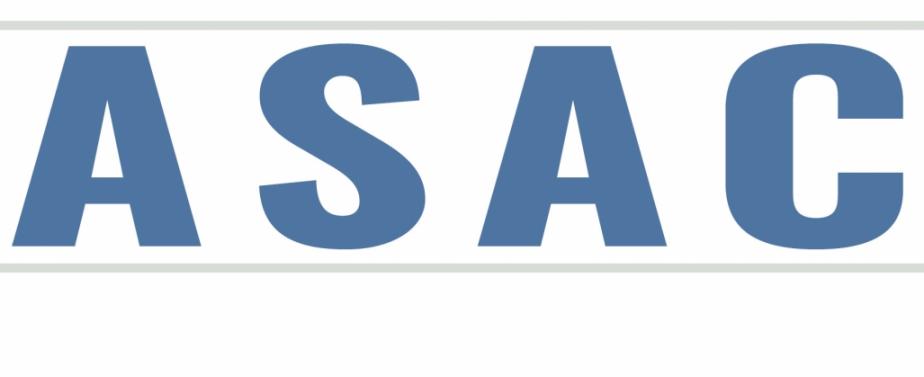When Clients Won’t Make a Decision
05/06/2021
As advisors, we’ve all experienced the situation where a client has all the information they need, including supporting data, charts, financial reports and detailed analysis that point to clear, predictable results—and yet they will not make a decision that any thoughtful businessperson would make. We’ve tried all our usual strategies, but for some reason this decision is tough for them.
In this situation the client is telling you they need an emotional reason to make the changes necessary to take this to approach. This seems counterintuitive, but remember we tend to make most of our decisions emotionally, and then justify them logically. (Note: This is why Kohl’s department store provides a detailed listing of the savings on every single item so that the purchaser can easily justify what they spent to… whomever might need that information….)
When we find ourselves in this situation with our client, we need to help them focus more on the value they place on the returns they will receive than simply the dollar amounts. For instance, if the change we are recommending will produce $50,000 in additional profit, we need to ask what they would spend that money on. Of course they will most likely say they would pay off bills, upgrade equipment, or other business-oriented expenses. We need to get them beyond this line of thinking because they are probably going to do these things anyway, and they don’t have any emotional connection to those activities.
The way we do this is to ask them what they would really like to spend that extra money on that would give their spouse or their family an extra level of satisfaction or joy in their life. We would say, “Tell me really… If you got to the end of the year and there was clearly $50,000 in extra profit that you did not anticipate, and you knew there were some things your family would like to do but have not been able to afford to do lately, and they had their choice, what would they like to spend that money on?” Trust me, they already know. You’ll often hear about an upgraded vacation, a new vehicle, new cabinets for the kitchen, a new bass boat, a hunting trip they’ve been wanting to take, recreational equipment for the family to enjoy, and other items. The important thing is to get them thinking about what their family would like to have or be able to do that currently is not in the budget. It’s not about the amount of money, it’s what they would spend the money on.
Once we find out what that item or activity is, ask them for a few details about how they intend to spend that time. Get the details about where they would want to go and what they would really like to be able to do when they get there, the kind of car they would like to have, how many days they will take on the trip, where the hunting trip would be, the recreational equipment or the details about the kitchen cabinets. The more details they share, the more emotionally attached they will be to not just having that experience or being able to enjoy this item, but they will also be emotionally attached to the reason to make the decision that will generate the additional profit.
I have had this type of discussion with all types of employees who need to improve production to maximize their bonus, as well as family members who are struggling to make business decisions. These questions cannot be asked in one single conversation but will require a few different discussions to harvest this information and help them make the connection between the decision that they’re making and any disruption or change the decision might create, and compare that to the emotional satisfaction they will receive for taking your advice.
For novice advisers, this may create some feelings of anxiety because you’re unsure if you can ask these questions and take your client through this process. If you have a good relationship with your client and their family, and you have proven the value of your advice in the past, you’ll find that you can strategically, gently and graciously walk through these questions, and help them slowly see the personal value they can receive by adopting your strategy.
What are some of the ways that you have used to help clients make very difficult decisions even though all of the facts point to the decision being a very logical and financially beneficial approach?
Don Tyler
Tyler & Associates
As advisors, we’ve all experienced the situation where a client has all the information they need, including supporting data, charts, financial reports and detailed analysis that point to clear, predictable results—and yet they will not make a decision that any thoughtful businessperson would make. We’ve tried all our usual strategies, but for some reason this decision is tough for them.
In this situation the client is telling you they need an emotional reason to make the changes necessary to take this to approach. This seems counterintuitive, but remember we tend to make most of our decisions emotionally, and then justify them logically. (Note: This is why Kohl’s department store provides a detailed listing of the savings on every single item so that the purchaser can easily justify what they spent to… whomever might need that information….)
When we find ourselves in this situation with our client, we need to help them focus more on the value they place on the returns they will receive than simply the dollar amounts. For instance, if the change we are recommending will produce $50,000 in additional profit, we need to ask what they would spend that money on. Of course they will most likely say they would pay off bills, upgrade equipment, or other business-oriented expenses. We need to get them beyond this line of thinking because they are probably going to do these things anyway, and they don’t have any emotional connection to those activities.
The way we do this is to ask them what they would really like to spend that extra money on that would give their spouse or their family an extra level of satisfaction or joy in their life. We would say, “Tell me really… If you got to the end of the year and there was clearly $50,000 in extra profit that you did not anticipate, and you knew there were some things your family would like to do but have not been able to afford to do lately, and they had their choice, what would they like to spend that money on?” Trust me, they already know. You’ll often hear about an upgraded vacation, a new vehicle, new cabinets for the kitchen, a new bass boat, a hunting trip they’ve been wanting to take, recreational equipment for the family to enjoy, and other items. The important thing is to get them thinking about what their family would like to have or be able to do that currently is not in the budget. It’s not about the amount of money, it’s what they would spend the money on.
Once we find out what that item or activity is, ask them for a few details about how they intend to spend that time. Get the details about where they would want to go and what they would really like to be able to do when they get there, the kind of car they would like to have, how many days they will take on the trip, where the hunting trip would be, the recreational equipment or the details about the kitchen cabinets. The more details they share, the more emotionally attached they will be to not just having that experience or being able to enjoy this item, but they will also be emotionally attached to the reason to make the decision that will generate the additional profit.
I have had this type of discussion with all types of employees who need to improve production to maximize their bonus, as well as family members who are struggling to make business decisions. These questions cannot be asked in one single conversation but will require a few different discussions to harvest this information and help them make the connection between the decision that they’re making and any disruption or change the decision might create, and compare that to the emotional satisfaction they will receive for taking your advice.
For novice advisers, this may create some feelings of anxiety because you’re unsure if you can ask these questions and take your client through this process. If you have a good relationship with your client and their family, and you have proven the value of your advice in the past, you’ll find that you can strategically, gently and graciously walk through these questions, and help them slowly see the personal value they can receive by adopting your strategy.
What are some of the ways that you have used to help clients make very difficult decisions even though all of the facts point to the decision being a very logical and financially beneficial approach?
Don Tyler
Tyler & Associates
Post a new comment







